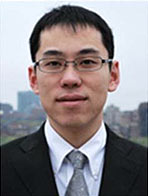Date
Cost
Free and open to the public
Location
Physical Science Building, Room 161
Description
Controlled release technology is expected to have a profound impact in many medical fields including oncology. The incorporation of chemotherapeutic agents in nanoparticle delivery vehicles has improved drug solubility, reduced clearance, and enhanced therapeutic effectiveness. With controlled release nanoparticle systems, a single dose can sustain drug levels within the desired therapeutic range for long periods in various diseases (e.g., cancer). However, currently approved nanomedicines provide modest survival benefits for patients, in part because of poor tumor penetration. Physiological barriers, such as the dense interstitial collagen matrix, hinder the delivery of drugs throughout the entire tumor. Another significant drawback of commercially available drug delivery particles is that drugs are released at a predetermined rate irrespective of patients’ needs or changing physiological circumstances. Last but not least, many nanoparticulate systems often suffer from translational problem through bench to clinical trials, due in part to uncontrolled formulation (e.g. low drug loading) that leads to modest preclinical efficacy.
In this talk, I will present efforts that address some of those critical problems in nanomedicine. First, a controlled nanoparticulate formulation using drugpolymer conjugates will be introduced where multifunctional drugs are conjugated onto the polymer through one specific functional group. Such system can increase drug loading to 30 wt% for various drugs, with a control of particle sizes (50 - 100 nm). Secondly, I will present a photo-switching nanoparticulate system that uses light as the remote means of triggering both on-demand drug release and reversible changes in particle volume (from 130 to 40 nm) to enhance tissue penetration. These photo-switchable nanoparticles provide spatio-temporal control of drug release and enhanced tissue penetration, useful properties in many disease states including cancer and ocular diseases. For the first time, the remotely light-triggered nanoparticulate drug delivery system shows preclinical benefits that enables repetitive dosing from a single administration with improved delivery efficacy throughout tumors.
Biography:
Rong Tong received his Ph.D. degree in Materials Science and Engineering from the University of Illinois at Urbana-Champaign in 2010, working on the synthesis and formulation of novel nanomedicines for targeted cancer therapy. Currently Rong is a postdoctoral fellow at Massachusetts Institute of Technology and Harvard Medical School, where he develops new strategies for drug delivery, including light-triggerable drug delivery, tuning tumor microenvironment, synthesis of theranostic biomaterials and prolongation of local anesthesia duration. Rong’s research interests include bioconjugate chemistry, nanomedicine, biomaterials and targeted cancer therapy. Rong has authored over 25 publications in peer reviewed journals, and over 5 patents submitted. Rong is the recipient of the Siteman Center for Cancer Nanotechnology Fellowship (2007), Racheff-Intel Award (2009), and ACS AkzoNobel Award (2010).
Presenter

Rong Tong, Ph.D.
Postdoctoral Fellow
Massachusetts Institute of Technology
Harvard Medical School
More information
Light refreshments will be served
Contact
Mari Pina NanoScience Technology Center 407-882-1515 Mari.Pina@ucf.edu